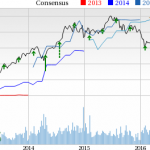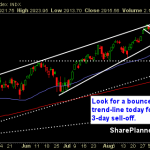The big news while we were sleeping off our Thanksgiving feasts was that the Shanghai Composite Index plummeted 5.5 percent following a reported investigation of China’s largest stock broker, Citic. The firm said it would cooperate with China’s stock regulator, but this didn’t keep Citic from falling 10 percent.
Further, the third-largest securities firm in China, Guosen, also tumbled 10 percent, as it is also under investigation for violations committed during the huge summer swoon that sent Chinese markets down 40 percent from their peaks in June. Since then, markets have recovered roughly half of those losses (and even with the 5.5 percent drop the Shanghai is still up 1.6 percent for the month of November). Haitong Securities trading was actually halted before shares could drop more than 0.65 percent.
This is all in a longer-term attempt by Chinese officials to foster a stock market that relies far less on speculation and leverage than support of the world’s second-largest economy. We can trace the tumultuous Chinese markets back to the devaluation of the yuan this past summer, which made investors heavily involved in China nervous.
Black Friday Exposing Some Grays
Otherwise, today is what is traditionally known as “Black Friday,” the day when American retailers finally turn a profit on their fiscal balance sheets. Availability of limited-supply gifts and products in demand and special deals are a couple of the reasons people flock to the stores today, despite overcrowded conditions with overzealous consumers raiding the shelves.
However, with Thanksgiving Day sales more common in recent years, not to mention the growing footprint of online holiday shopping, we’re now looking at a diminished impact of Black Friday in the revenue streams of retailers like Best Buy (BBY – Analyst Report) and Macy’s (M – Analyst Report). And, as Director of Research Sheraz Mian has already pointed out, any discussion of strength in online retail always orbits around Amazon (AMZN – Analyst Report).
Next Week: Big Data
We expect talk about whether or not the Fed will raise interest rates in its December meeting to intensify next week, especially with regard to the Bureau of Labor Statistics’ non-farm payroll report a week from today. Chairwoman Janet Yellen & Co. will be looking closely for meaningful signs of weakness in U.S. employment trends; at this time, this seems to be the only foreseeable thing keeping the Fed from ratcheting up the nominal interest rate.













Leave A Comment